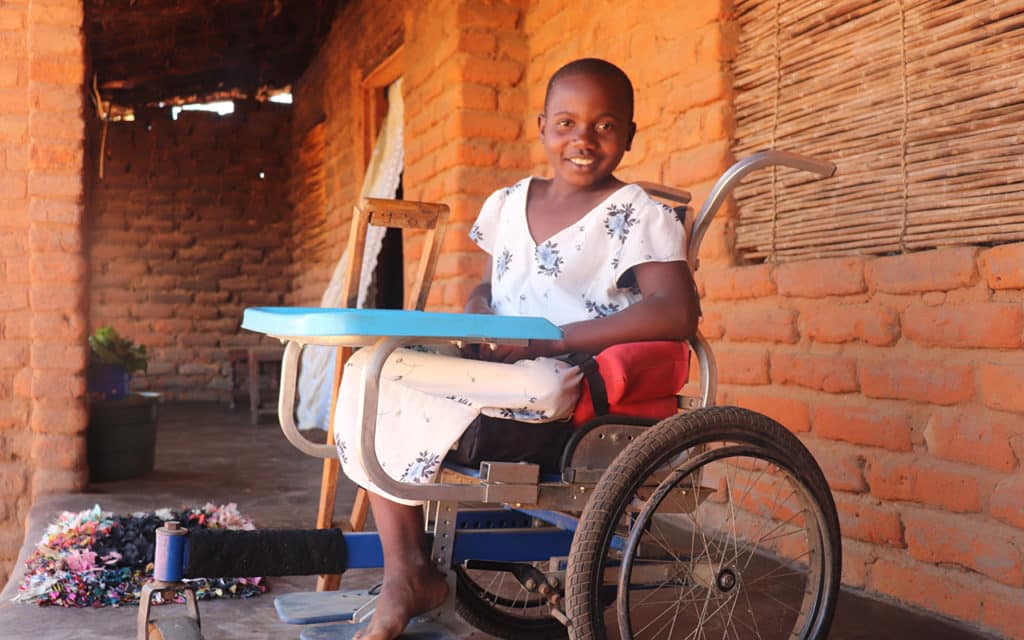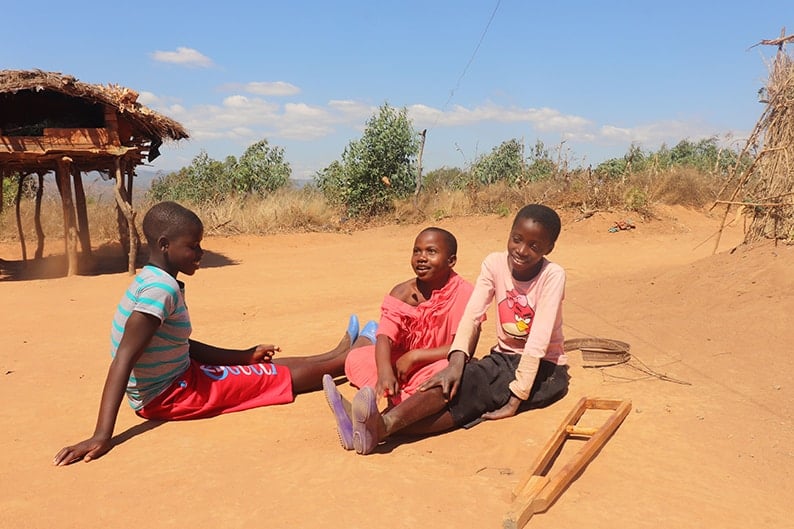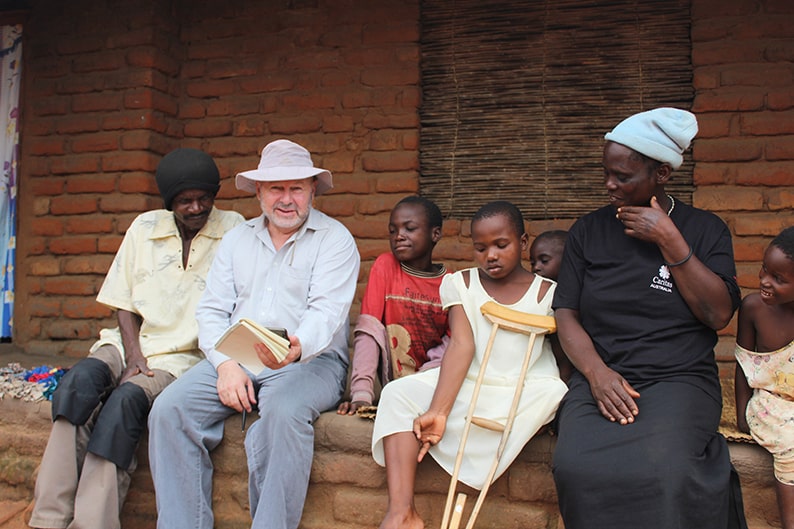
For the communities which Caritas Australia serves through your support in 23 countries, the spread of COVID-19 represents a growing risk – across Asia, the Pacific, Africa, the Middle East and within First Australian communities. This is particularly so due to growing water and sanitation challenges, as well as during food distributions and in the delivery of medical and emergency supplies.
For Caroline Preston, Caritas Australia’s Head of International Programs, the virus presents a real threat to the marginalised communities with whom Caritas Australia works.
“Sadly, as the Coronavirus (COVID-19) continues to spread in an unpredictable manner, it represents a growing risk to vulnerable communities globally,” Ms Preston said.
“Yet we are all part of one human family and Project Compassion is Caritas Australia’s leading campaign empowering people and communities to eradicate poverty in all its forms. When we stand in solidarity we ‘Go Further, Together’ to support others to live a life of dignity and hope.”
“It gives me hope that I will finish my education. My community now understands that my living with a disability is not inability. Although I sometimes face discrimination, most of the community has realised my value as a person.”
— Tawonga, Malawi
Ms Preston said this year’s Project Compassion campaign, Caritas Australia’s Annual Lenten fundraiser, during these times of global change, makes your support more important than ever.
This week during Lent, Caritas Australia’s Project Compassion campaign is featuring the inspiring story of Tawonga, a 10-year-old girl living with a disability in Malawi whose name means ‘thank you’.

Twenty-three per cent of all child deaths in Malawi are related to poor nutrition. For Tawonga, limited access to food was compounded by the challenge of her having a physical disability.
For most of her life, her parents have struggled to put meals on the table in her village in northern Malawi, which is plagued by food insecurity. Tawonga often had to miss school because she was too sick from hunger. The family also faced discrimination in their community due to her disability.
“People living with disabilities were not regarded as important and they thought they did not deserve such things,” Tawonga’s mother, Agnes says.
“Sometimes we had one meal per day. And when we are hungry, we do not attend classes,” Tawonga says.
Her parents also found it difficult to afford school fees. Sadly, when she did make it to school, other students would insult her about her disability.
In 2016, Tawonga’s parents heard about the A+ program, run by Caritas Australia’s partner, CADECOM (Catholic Development Commission in Malawi). They learnt irrigation farming and were given fertiliser and high-yield seeds. With these new techniques, their production of crops almost tripled.
“An estimated 2.4 per cent of youth in Malawi are living with a disability, and around 90 per cent of them are in rural areas. School attendance is much lower for people living with a disability like Tawonga, mostly because schools aren’t equipped to meet their needs.” — UNICEF
As part of the program, the community also learnt how to better support people living with disabilities. Through the reduction of stigma and discrimination, a new culture of acceptance and collaboration flourished.
Tawonga’s parents are now able to harvest twice a year. Her mother joined the village savings and loans group and was able to start a small business, selling fish, rice and vegetables. Now they can eat three meals a day. They can also afford to send Tawonga to a school with a live-in campus and disability-friendly facilities, for a better education.
With your help, this transformational program can continue to empower vulnerable women, men and children, and strengthen the communities around them. Please donate generously. A brighter future for all can start today. Let’s Go Further, Together.
Scott Martin working with local communities in Malawi and Tanzania

Scott Martin, Caritas Australia’s Program Coordinator for Malawi, has been working with communities like Tawonga’s since 2003. Here’s what he had to say about the progress that can be made to empower communities to better respond to their challenges, including those faced by people living with a disability.
“Every year large parts of Malawi encounter crop failures. Most Malawians are small-scale subsistence farmers, so this is critical,” Scott says. “For around a quarter of the year, households have depleted food supplies. The lean season coincides with December and as one farmer told me, “We don’t celebrate Christmas. We go to church and pray and then resume our struggles.”
Caritas Australia is working with communities and our local partners to diversify crops and livelihoods.
Scott also spoke of the way that through the A+ program, Tawonga’s family is now able to produce sufficient food to feed their family as well as have an excess for sale.
“The proceeds of this have enabled them to afford to send Tawonga to a boarding school in nearby Rumphi town,” he said. “Despite their challenging lives, the people of Tawonga’s community maintain strong family bonds. Your support is enabling great progress in the marginalised communities of Malawi, a nation known as the ‘warm heart of Africa’. Thank you for your generosity.”
Your support enables us to Go Further, Together. Thank you for standing with us to tackle endemic poverty in all its forms. Donate now via lent.caritas.org.au
Find out more about Caritas Australia’s partnership with Dominic’s community by watching this short film CLICK HERE
